Democratic-Nonpartisan League Leadership Summarizes the 67th Legislative Session
BISMARCK, N.D. – Advancements in health care, education, infrastructure, and equality issues were the highlights of the 2021 legislative session, according to Democratic-NPL lawmakers. However, these high points were marred by fights over controversial, unconstitutional, and unnecessary legislation.
“Despite the distractions of the extreme agenda of some Republicans, we advanced a broad array of policies that will improve the lives of working people and families in our state,” according to Senate Minority Leader Joan Heckaman (D-New Rockford)
Successes
Dem-NPL leaders, who have long led the conversation on bonding for long-term needs, advocated for a $2 billion bonding bill this session. The Legislature finally authorized up to $680 million in infrastructure bonds to finance local projects. It also passed legislation to provide long-term certainty in how the state spends its earnings from the Legacy Fund and a bill to invest more of the Legacy Fund’s principal in North Dakota infrastructure.
“We are encouraged that our Republican colleagues now see the need to utilize bonding to move forward these kinds of programs,” Sen. Tim Mathern (D-Fargo) “While not the more expansive, more responsive result we proposed, this legislation will allow important action on infrastructure needs in communities across the state, create good-paying jobs, help reduce the impact of property taxes, and freed up general fund dollars to fund other crucial priorities.”
“These bills support our economy and prioritize North Dakota’s infrastructure and the needs of our communities,” said Rep. Alisa Mitskog (D-Wahpeton). “When we invest in North Dakota first, we all win. I look forward to continuing to work with my GOP colleagues to advance natural gas infrastructure through the interim.”
The Dem-NPL Caucus also secured a major win for first responders in HB 1435 sponsored by Rep. Zac Ista (D-Grand Forks). It provides continuing health care coverage for the spouse and children of first responders killed in the line of duty.
“Those who pursue careers in law enforcement and public safety should be honored as the heroes they are,” Rep. Ista said. “They willingly put themselves in harm’s way to keep us safe, and they deserve our gratitude and our support. And when someone pays the ultimate sacrifice in service to our state, we should support the family they leave behind.”
Distractions
This session saw mountains of distracting and regressive bills from the Republican party. They chose to waste limited legislative time, money, and energy on conspiracies over the 2020 election, picked politics over public health, and manufactured problems to target marginalized youth.
“Average North Dakotans don’t send us to the legislature to push extremism,” according to Sen. Erin Oban (D-Bismarck). “When you prioritize divisive ideologies and personal agendas over the everyday needs of North Dakotans, you put our people and our economy at risk. I was not elected to push an ideology. I was elected to work across the aisle to pass meaningful legislation to address real problems. The divisive headlines that have come out of this legislative session cloud our successes and tarnish the reputation of North Dakotans.
Missed Opportunities
This session shows that Republicans have a habit of opposing Democratic ideas unless they can take credit for them. This session, the Caucus worked hard to decrease prescription drug prices, pass paid family leave, and provide financial relief to small businesses, students, and essential workers. Each one was voted down.
“In North Dakota, we take care of one another,” said Rep. Josh Boschee. “No matter who needs help, at a moment’s notice, we will be there to change a tire, provide a meal, or shovel snow off the driveway or put sand into a bag. Unfortunately, Republican legislators are more interested in providing favors to big business and advancing culture wars instead of supporting the working people who were instrumental in how our communities and state responded to the pandemic.”
###

